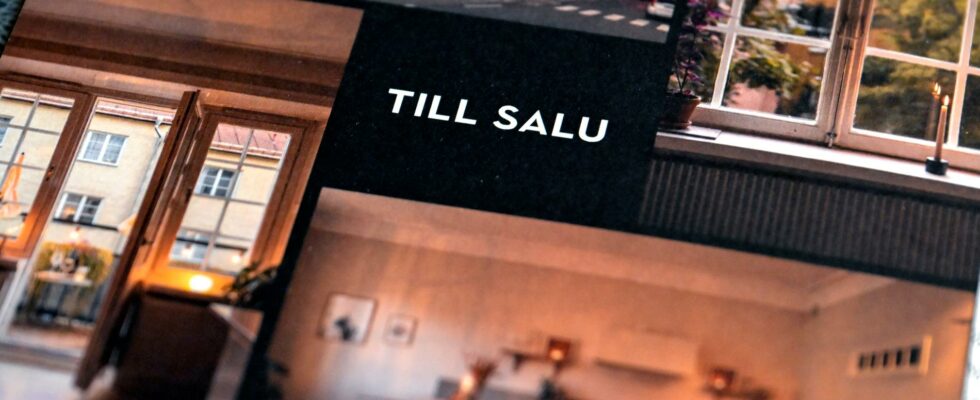unsaveSave
expand-left
full screen
chevron-rightnext
Real estate agents are subject to the Money Laundering Act and have an important role in countering money laundering, according to the Ecocrime Authority. Archive image.
1 / 2Photo: Janerik Henriksson/TT
The brokerage business is interesting for criminals who want to launder money and invest crime profits. It is difficult to be discovered.
– The risk exists in industries where large sums change hands, says Sara Persson at the Ecocrime Authority.
A top broker in Stockholm is sentenced for fraud, accounting violations and business money laundering for multi-million sums. Real estate is a high-risk industry for money laundering and organized crime, according to the Ecocrime Authority.
Criminals have an increased need for professional money launderers, people who can provide contracts, fabricated salary certificates or assist with bank transactions. But it is difficult to say how big the problem is in the brokerage industry – the dark story is big.
– Organized crime has reached a new level, there has been increased professionalisation. Eco-crime is extensive, it is a serious development, says Sara Persson, crime prevention specialist at the Eco-crime Authority.
There are opportunities
The industry organization Mäklarsamfundet and the supervisory authority Fastighetsmäklarinspektionen (FMI) believe that eco-crime among brokers is unusual. Errors in marketing are what lead to the most penalties, according to FMI.
But that there is an opportunity for those who want to use the industry to launder money, agrees with Mäklarsamfundet’s chief legal officer Niklas Rollgard.
Real estate brokers and brokerage firms are subject to the Money Laundering Act and must report to the Financial Services Agency in case of suspicion.
– We work with that all the time and make the assessment that the vast majority of people we come into contact with want and do their very best to follow the regulations, says Rollgard.
The industry must achieve customer knowledge, which is where the money comes from. Anders Astonsson, digital strategist at FMI, believes that it is more common to be penalized for missing customer knowledge than to actively contribute to money laundering.
– It is not common to actively do it, but a few times a year in recent years. We believe that it is linked to increased gang crime.
Guidance
The customer awareness check largely consists of asking the customer questions. It is often difficult for a broker to know how the answers should be valued, says Rollgard:
– The brokers are not allowed to share the information that emerges and it is then up to the individual broker to make the assessment. The industry needs more guidance.
The brokerage industry has an important role in countering money laundering, according to Sara Persson:
– Several industries have a very high level of secrecy around their information. If we see people hiding behind secrecy to exploit the system, then maybe you need to look at this law.
FACT Money laundering in the real estate industry
Money laundering via properties in Sweden turns over large amounts. The transactions in suspicion reports involving real estate were summed up to over SEK 5 billion in 2022.
There are brokers and other professional actors in the real estate sector who knowingly assist in money laundering schemes.
The dark story is judged to be large regarding the brokers themselves.
There are brokers relevant in terms of money laundering who have family ties to leading actors in criminal networks.
Source: “Professional money launderers,” report from the Police Authority
Read moreFACTS The supervision of the Real Estate Agency
FMI exercises supervision in accordance with the Real Estate Brokers Act and the Money Laundering Act.
You must be registered with FMI in order to practice the brokerage profession. In 2023, there were 7,605 brokers. Since 2017, 114 people have lost their registration as a result of decisions by FMI’s disciplinary committee. 45 cases concern “Payment of annual fee” and 37 concern “Property and suitability”.
Fairness and suitability checks are carried out when new real estate agents are to be registered. It is checked whether the person has been convicted of certain types of crime or has debts. Annual checks are also made of crimes and debts among those registered.
FMI also receives tips from other authorities, banks or the industry itself about brokers or companies that they should look into more closely.
Source: fmi.se and Anders Astonsson, digital strategist FMI
Read more
